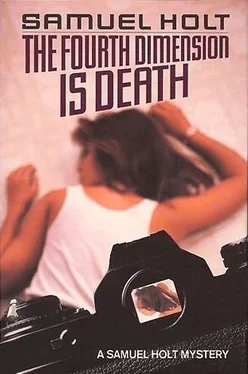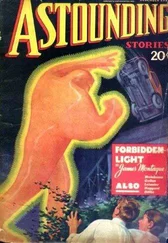The papers in her lap, Bly sat on the sofa and watched me pace my office, until the intercom buzzer sounded and I picked up the phone on my desk. “Yes?”
“I have Mr. Cooperman on the line.”
“Thanks, Robinson,” I said. Oscar Cooperman is my California attorney, and I’d never needed him so much in my life. I pushed the lit button and said, “Oscar?” and heard fuzzy air, full of static. “Goddamit, Oscar,” I said, “are you in the goddam car again?”
Static. The words “...that impor...” drifted to the surface, and the static closed in again.
“You’re goddam right it’s that important, Oscar! Oscar? Where are you?”
Suddenly his voice was loud and clear, as though he were in the room with me: “You don’t have to shout.”
“Oh, yes, I do,” I said. “I’m being sued.”
“Of course you’re being sued,” he told me calmly. “Everybody in your income bracket is being sued. You’re involved in three suits or countersuits that I know, and Mort may be handling one or two back in New York that I wot not of.”
“Not like this, Oscar,” I said.
“Oh, really?” He sounded skeptical. “And what makes this fright different from all other frights? And why should I—” Static. Furry static, with hairballs.
“God damn it, Oscar, come back! Where are you?”
Static. “Coldwater Canyon.” Static.
“Oscar? Can you hear me?”
“Perfectly,” he said, imperfectly. “ You’re the one having trouble, not me. These cellular phones are—”
“Could we talk about the lawsuit, please? I’m not in the market for a car phone.”
“Mistake on your part. I find it indispensable.”
“So I’ve noticed. Oscar, do you remember somebody named Dale Wormley?”
Static: thoughtful static. “The lookalike, wasn’t it? He died, Sam, he can’t sue anybody any more.”
“His mother is suing me,” I said, enunciating carefully into that cellular telephone careening either up or down Coldwater Canyon, “for violating her son’s civil rights by murdering him.”
Silence. Profound silence, not even static. “I’ll be right there,” Oscar said.
“Well, that’s very pretty,” Oscar said, sitting in my living room, leafing yet again through the papers that had been served on me.
“You have a different sense of beauty than I do,” I said.
“A poke of the sharp stick in the eye of the beholder,” Bly said.
“I agree, I think,” I told her.
“Hmmmmm,” Oscar said, smiling indulgently on the papers like an uncle viewing his favorite nephew. Oscar is a stocky man in his mid-forties with a round baby-face, a gleaming bald dome, and a thick Brillo pad of gray hair around the sides, sticking out beyond his ears, making him look like an astonished and very old baby. Now, talking more to himself than to Bly and me, he said, “This wasn’t, of course, the intent of the law, but it certainly comes within its range.”
I said, “You mean, this can happen? She can do this thing to me?”
“Oh, absolutely,” he assured me. “Sue you, that is. Not necessarily win. But she can certainly sue you under the cited statute.”
“Even though I’ve never been found guilty of murdering her son, or even charged with it, or even very seriously considered for it?”
“Well,” he said, “that’s what the statute was all about, in the first place. When the civil rights struggle heated up, starting in the fifties, activists were murdered from time to time and very little was done about it, the crimes being against state laws and coming under the jurisdiction of state courts, most of whom were antithetical to the goals of the activists to begin with. This law was designed to find a way to bring those miscreants into Federal court, out of the state system, and at least find them guilty of something . Get the facts on record. Brand the killers in the public eye and cause them as much trouble and expense and inconvenience as possible.”
“The law,” Bly said perkily, in a singsong voice as though reciting a poem, “is the true embodiment/Of everything that’s excellent.”
Oscar considered her for a long moment, as though she were another set of tricky legal papers, and finally said, “Gilbert and Sullivan?”
“Just Gilbert, unless I sing it,” she told him. “ Trial By Jury .”
“Well, that I don’t recommend,” Oscar said, returning his attention to me. “You don’t want a jury in a case like this, full of people who can get even with you for being rich and famous.”
I said, “Oscar, you mean this is going to court? ”
“Well, I don’t quite see how we could settle out of court,” he told me. “Any settlement at all would imply some acceptance of their allegations, whether we publicly admitted to them or not.”
“First thing we do,” Bly said, “let’s kill all the lawyers.”
“Steady,” Oscar told her.
I said, “Oscar, how can she do this?”
He hefted the papers. “Her new cause of action,” he said, “is the transfer of the original investigating detectives off the case, which had the effect of ending all active efforts to solve the murder of Dale Wormley.”
“That isn’t why they were replaced,” I objected, but even as I said that I could imagine how much Feeney and LaMarca would enjoy testifying against me in court. That was the instant when I stopped being merely astonished and started being scared.
Oscar was going blithely on, saying, “That’s only her doorway into court. The suit itself is for violation of Dale Wormley’s civil right to the uninterrupted enjoyment of his life, and the effect of that interruption on his mother. Her call for damages is based on her son’s anticipated future support of her, projecting — quite optimistically, I think, though it hardly matters — her son’s probable future earnings, now cut off. But those, of course, are not the details we wish to argue, or even pay much heed to. The main issue in this suit is the accusation of murder.”
I said, “The fact is, this woman really and truly does think I killed her son. She told the papers in New York that I was getting away with it because I was rich and powerful and the police were afraid to come after me.”
Oscar grinned. “That’ll be the day.”
“But she doesn’t know that, does she?” I shook my head, answering my own question. “And now she’s found some lawyer who sees publicity for himself in all this—”
“First thing we do,” Bly said, and stopped, and grinned amiably at Oscar, who gave her a crooked grin and nod right back, his eyes on me.
I said, “So this way she gets to have me tried for the murder after all.”
“That’s true. And in a much worse venue,” Oscar pointed out. “From your point of view, that is.”
“Worse venue? Meaning what?”
“The rules of evidence,” he told me, “are less rigorous in a civil court than in a criminal court. The standard of proof, for instance, in criminal cases, is that guilt must be established beyond a reasonable doubt. But in civil cases judgment can be derived merely from the preponderance of the evidence. All the rules are looser and simpler.”
“Good God, Oscar,” I said. Beside me, Bly looked as worried as I felt, and as though she wasn’t even trying to find an appropriate quotation.
Oscar looked grim, as though he’d scared himself as much as us. “You’re right,” he said. “You’re going to be tried for murder. And it’s going to happen in a court that was never set up to fairly handle such a matter.”
A conference call involving Oscar here in LA and Mort Adler in New York didn’t add to my joy. Mort’s assessment of the situation was at least as gloomy as Oscar’s. And he had the additional bad news to convey that three civil rights legal organizations had joined the case as friends of the petitioner; for the publicity involved, of course, but so what? None of the three organizations were large or well-known or particularly respectable — nothing like the ACLU, for instance — but their names would still add a sheen of social responsibility to Mrs. Wormley’s efforts.
Читать дальше












